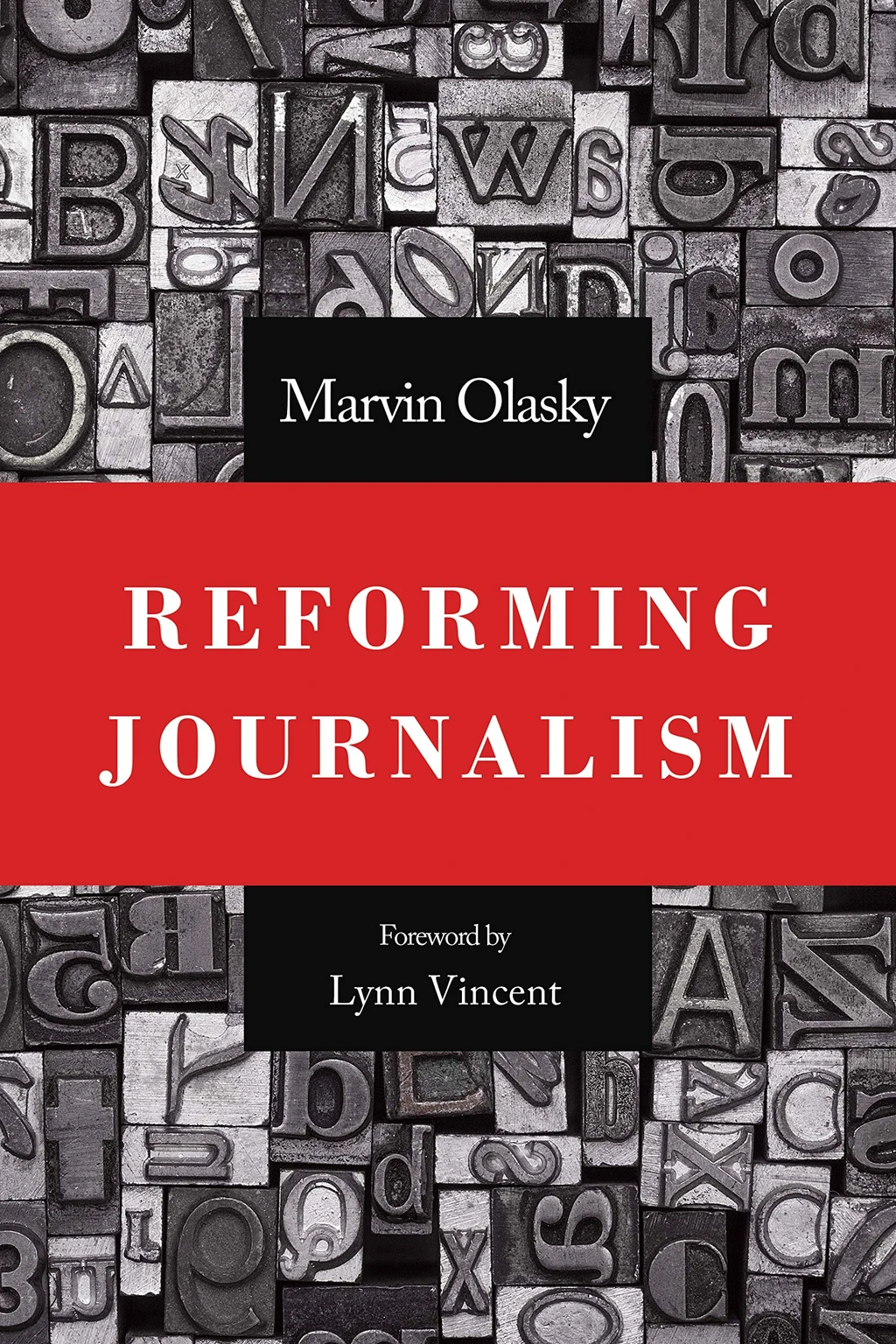
Marvin Olasky
Reviewed by: Judith M. Dinsmore
Reforming Journalism, by Marvin Olasky. P&R, 2019. Paperback, 392 pages, $13.99 (Amazon). Reviewed by New Horizons managing editor Judith M. Dinsmore.
Marvin Olasky, editor-in-chief of World magazine and author of twenty-two books, wrote his new Reforming Journalism with aspiring journalists in mind: each chapter ends with key terms, discussion questions, and a bibliography for further reading. Indeed, the book would work best in the hands of a teacher who could deepen what Olasky skims—the state of journalism in China and the United States, the history of Western journalism, and the how-tos of the trade. He has most likely used the book’s material himself in his mid-career journalism course or the World internship program. Occasionally, the writing resembles hasty lecture notes. But the content, though quickly covered, is helpful.
The first part centers on Olasky’s trademark articulation of the “central concept of Christian journalism”: biblical objectivity (23). “Our goal is to take strong stands when the Bible is clear, and to avoid doing so when the Bible is not,” he writes (25). It’s almost uncomfortable in its simplicity but rings true. Olasky offers six gradations of clarity from contemporary issues that the Bible unmistakably addresses, such as abortion, to those more layered and complex, such as trade relations with China.
The second part is nitty-gritty advice for prospective journalists, from interviewing to revising drafts to developing what Olasky calls the “determination quotient” (187). The third section speeds through the centuries since the Reformation to note examples of biblical objectivity and bravery in journalism. He traces socialism and postmodernism in American journalism through the 1950s, then describes the modern-day journalistic tilt toward the left in the United States.
Reform in the field is certainly necessary. Print media sales have plunged in the last few decades, small newspapers are being absorbed by conglomerates and staffs eviscerated, and digital journalism still struggles to make money. Along with our age’s crisis of trust in institutions like law enforcement, schools, and corporations, comes a crisis of trust in journalism.
Olasky seems to be endeavoring to raise up an institution—biblically objective journalism—that takes its format and practices from secular journalism (Olasky trained at The Boston Globe) but rethinks the worldview. Reforming Journalism is but one facet of his commendable endeavor. As editor of an independent national Christian magazine with 85,000-plus subscribers, according to its website, Olasky may have reason to be confident of some success. But as Christians reckon with where our duty of allegiance lies amidst institutional deterioration, we ought to be wary of proposing an automatic shift to purer but more poorly funded alternatives modeled on the collapsing structure. We might find ourselves watching gloomily from the sidelines as the Christian version struggles to keep up with its own quality ideals, with the rapidly changing digital world, and with its secular counterparts. Only a few institutions are inviolable. Maybe these days are a chance to rethink the structure of the rest, including traditional journalism.
September 07, 2025
August 31, 2025
J. N. Darby and the Roots of Dispensationalism
August 24, 2025
August 17, 2025
Reformed Covenant Theology: A Systematic Introduction
August 10, 2025
August 03, 2025
July 27, 2025
© 2025 The Orthodox Presbyterian Church